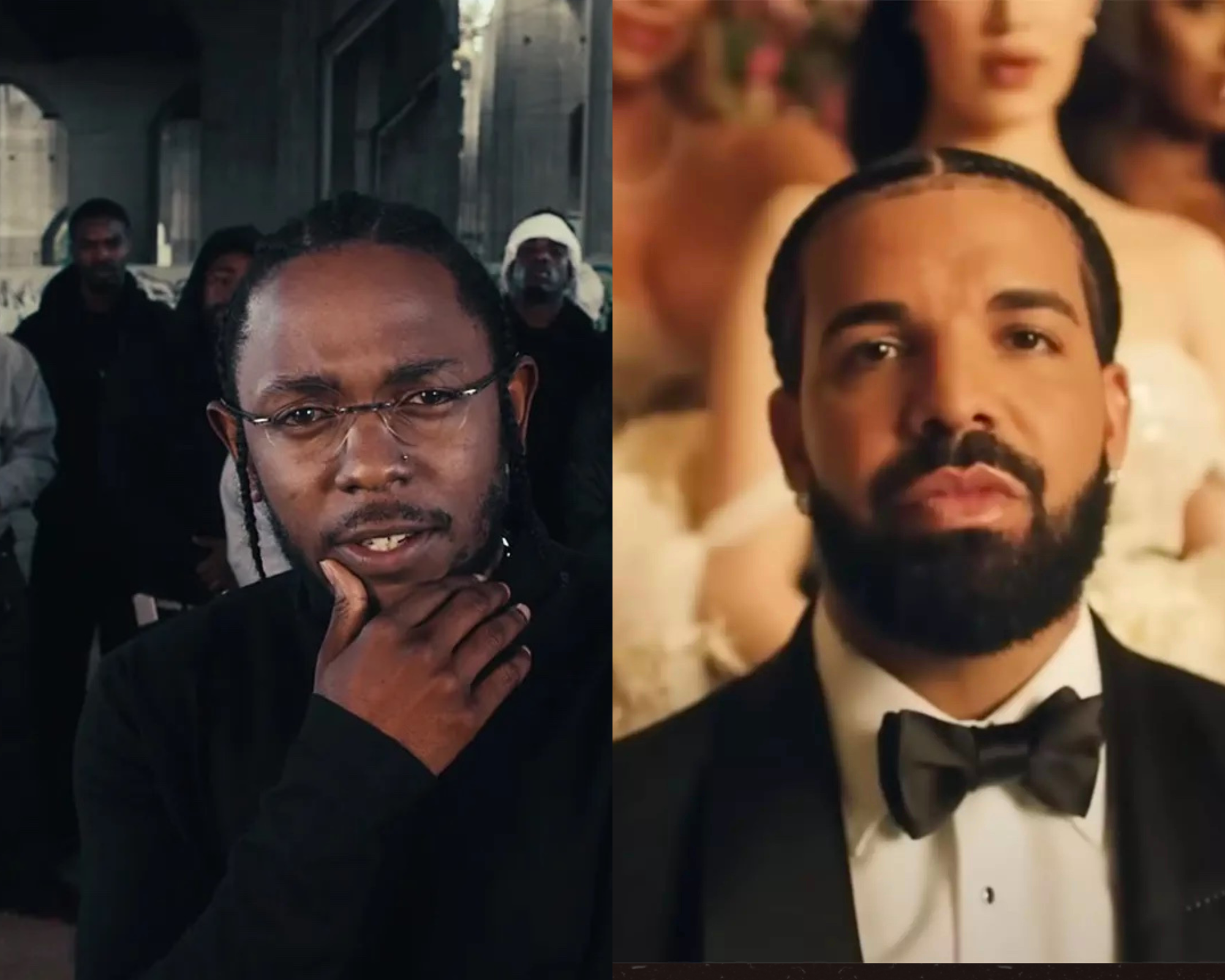On a Tuesday morning when most of the nation was either at work or school, Kendrick Lamar released “Euphoria.” The diss track serves as a response to Drake’s “Push Ups” and the A.I.-assisted “Taylor Made Freestyle.”
Both records found Drake using hilarious punchlines to troll Kendrick’s small stature and possible flawed recording contract. With “Euphoria,” Kendrick dissects Drake’s persona.
For over six minutes, Kendrick aims at Drake’s motives and insecurities, opening with the line spoken in reverse, “Everything they say about me is true.” The quote was sampled from Richard Pryor’s character in the 1978 film “The Wiz” in which he reveals himself to be a phony.
In the midst of a multitude of layered lyrics, double entendres and hidden nuggets, Drake being a phony is the gist of Kendrick’s diss record.
This is no longer a battle about who’s the best rapper of this generation, Kendrick sparks discussion on the timeless question, what’s the difference between cultural appropriation and cultural appreciation?
Kendrick leans on Drake being a Canadian who’s not from the Black communities where hip-hop began.
Hip-hop has always stood as a Black art form, born from the neglect bestowed on inner-cities in the 1970s and ’80s. Kids from the Bronx, New York created and used hip-hop to make a way out of no way, and the kids from urban areas of Atlanta, Chicago, Houston, New Orleans, and Compton also found inspiration, revealing telling aspects of Black subcultures in America.
But as hip-hop grew in popularity, so did the commodification of the culture. The highest bidder could capture moments and segments of hip-hop without actually being from the communities that birthed it. The term “real hip-hop” became a moniker to separate authentic hip-hop from the fake or phony. There’s a difference between rap crafted for radio play, and rap produced for mixtapes.
However, hip-hop’s biggest allure can also be its curse. Hip-hop is infectious, as a result, the culture has resonated globally and foreign rap can be found in nearly every country around the world. Most hip-hop artists from Japan, Italy, China, France, Brazil, and India have never walked in a Black community, but they are inspired to create the music and align with Black culture.
Drake was also inspired by the genre as a kid growing up in Canada.
Kendrick’s assessment of Drake on “Euphoria” is that he was able to experiment and perform rap without the trauma that’s often associated with Black communities. Instead, Kendrick believes Drake cosplays rap, using collaborations with inner-city rappers and faux accents to connect with movements in New Orleans, Houston, and Atlanta.
Drake stands as one of the top-selling rap artists of all-time, but he catches flack for not using his platform to rap about issues that concern the Black community. Even in the midst of uprisings in Ferguson, Baltimore, and Minnesota, Drake didn’t use his music to address those situations. (Drake did donate $100K to bail relief for George Floyd protestors and wrote a poem dedicated to Floyd).
Every musical art form created by Black Americans (blues, country, jazz, rock & roll, and R&B) has been co-opted. At some point, Elvis became more celebrated than Little Richard, Kenny G sold more records than Miles Davis, and K-Pop usurped R&B in global popularity.
Rap remains the one music genre where Black American artists are still the primary drivers and influencers of the culture. But the future of hip-hop culture is uncertain. In 2023, it took six months for a rap album (Lil Uzi Vert’s ‘Pink Friday”) to top the Billboard charts. The introduction of A.I. has fans guessing over which rap verses are authentic. And disposable rap has become the norm.
By painting Drake as an “other,” Kendrick sees himself as a cultural gate-keeper. Although Kendrick inserts race into the “Euphoria” diss, saying Drake should stop using the N-word, the focus remains on culture. It doesn’t matter that Drake is bi-racial, does he use Black culture while remaining disconnected from the true issues within the community?
Kendrick has remained consistent in his critiques of those who misuse Black culture. On the “Heart Part 5,” he lamented the toxic aspects of hip-hop music that’s being presented as “culture.”
Drake’s success will never equate to the level of Elvis’ co-opting of the blues and rock & roll. His father is musician Dennis Graham and his uncle is Larry Graham, Jr., a prolific musician and member of Sly and the Family Stone. He has a strong Black music pedigree.
However, to Kendrick, Drake is still a Canadian who was raised in a setting removed from Black American reality.
Driving home a point of protecting a genre that has inspired millions who love Black American culture, while ignoring the plight of Black people.


